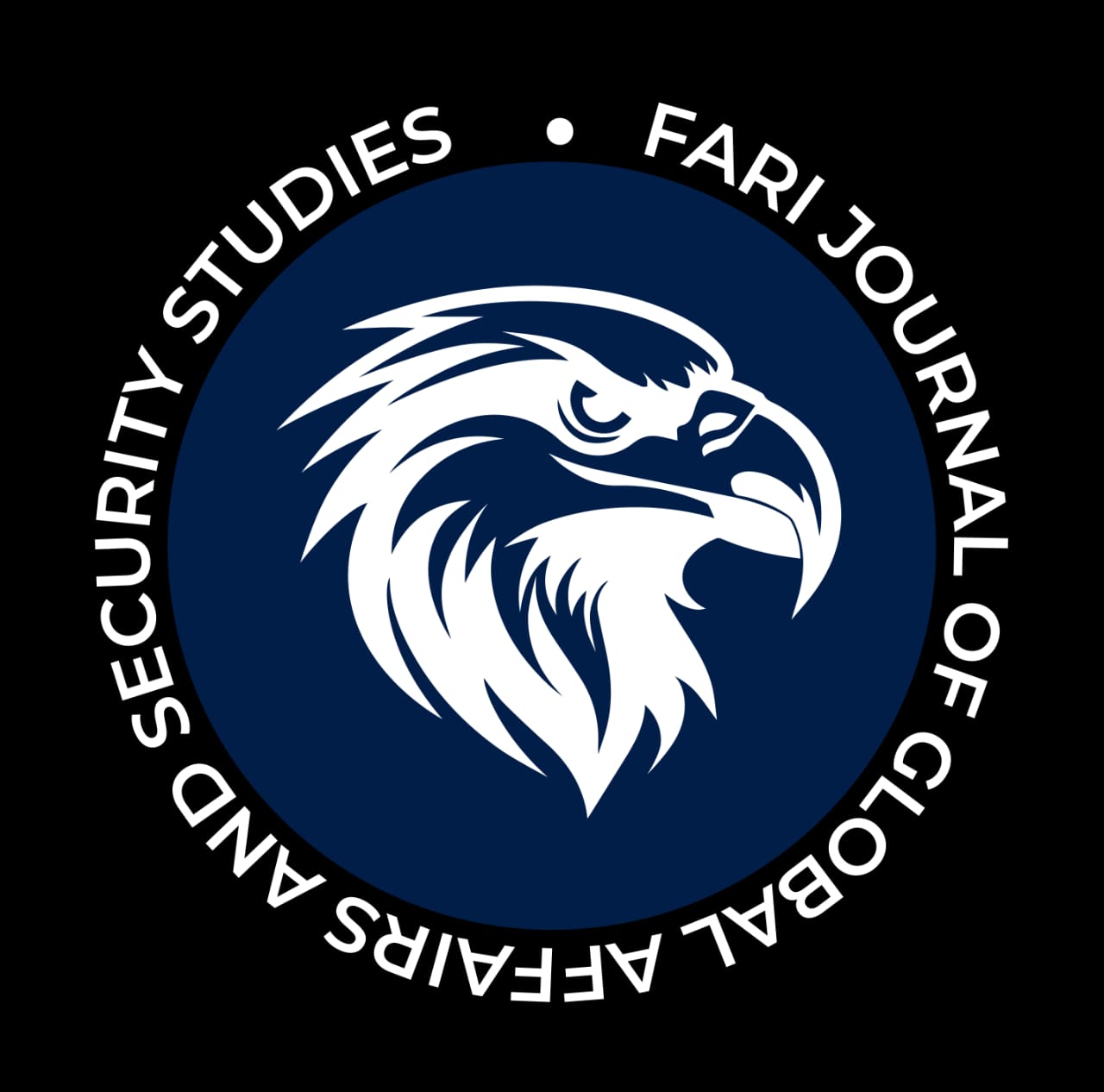
Journal Name: Fari Journal of Global Affairs and Security Studies
Short Name: FJGASS
ISSN(Print) : 3078-8900
ISSN (Online) : 3078-8919
Frequency : Quarterly
Nature: Print and Online
Submission: Via OJS System
Languages of Publication: English
Name of Publisher: FARHAN ABBASI RESEARCH INSTITUTE (SMC-Private) Limited
Address of Publisher: Sector N , DHA Phase 1 Lahore, Punjab- Pakistan.
Whatsapp number: 0092-3454055044
Email: editor.fjgass@fari.org.pk









